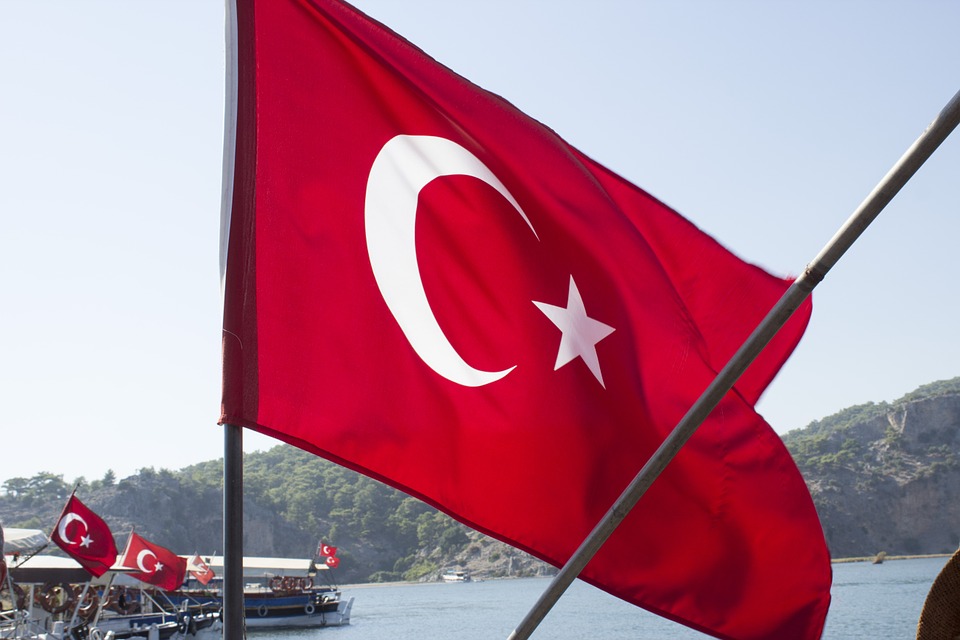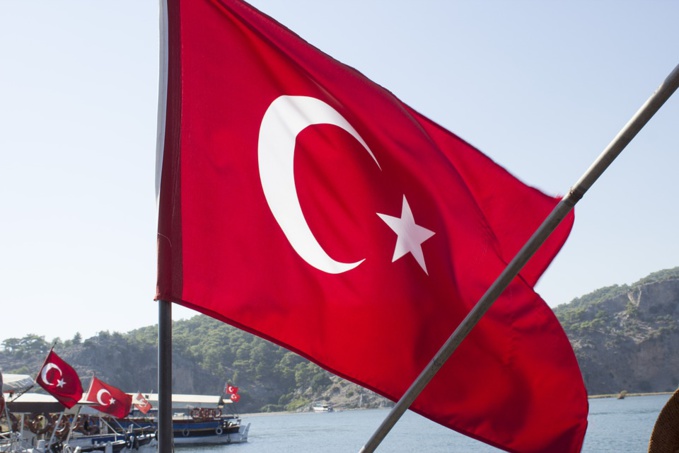"Turkey should not be afraid of European neighbors," European Commission President Jean-Claude Juncker said optimistically. "We want to see a democratic, stable and prosperous Turkey."
Turkey takes an important place in the plans of the united Europe. Suffice it to recall that thanks to the agreement on migrants between Brussels and Ankara, Europeans managed to significantly lower the degree of migrant crisis on the continent. Not only Turkey protects Europe from the waves of refugees, but also plays an important role in ensuring its safety. On the other hand, the country can play a destabilizing role. Brussels keeps in mind a prospect of Turkey's accession to the club of nuclear powers. The nuclear bomb in Ankara's arsenal can radically change alignment of forces in Europe and Asia and, most likely, in other regions of the planet.
Berlin believes that relations with Turkey are of great importance. This is understandable, if you recall the large Turkish diaspora in Germany. They were born in Germany, have German passports and have a great influence on the life of their second homeland.
German politicians at the highest level often talk about the importance of relations with Ankara. So, Andrea Nahles, the leader of the German Social Democrats (SPD), members of the ruling coalition, recently announced possibility of Germany's assistance to Turkey.
"There may be a situation where Germany will need to help Turkey regardless of political differences with President Erdogan," Frau Nahles said in an interview with Funke media group on the eve of the September visit of Turkish President Recep Tayyip Erdogan to Berlin. "Turkey is our NATO partner and we cannot ignore this circumstance. It is in everyone's interests that Turkey remains economically stable and that the current volatility of the Turkish currency ends as soon as possible."
At the same time Berlin, according to Spiegel magazine, keeps persuade Ankara to agree to the assistance program offered by the IMF. Recently the head of the Ministry of Finance of Germany Olaf Scholz advised this to his Turkish counterpart. However, getting loans from the IMF under the US control will not be easy for Turkey, given its tense relations with America over the arrested American pastor, Ankara's intention to buy from Russian S-400 missiles and many other disagreements.
Nahles’ colleague, former Foreign Minister of Germany Zigmar Gabriel also believes that Turkey's isolation will not benefit Europe. He, however, spoke not only about economics and finance, but also about geopolitics. "In our common interests, we must do everything possible to keep Turkey in the West," Gabriel said in a recent interview.
He also warned that it is not America, but Europe will be first to pay an expensive price, if instability in Turkey will arise due to American sanctions. First of all, this will affect the number of refugees crossing the borders of the European Union.
It was Sigmar Gabriel who spoke about the danger of an atomic bomb in Turkey.
In view of the close ties between the two countries and the millions of ethnic Turks who have German citizenship, the economic turmoil in Turkey can negatively affect the German economy. Of course, the latter wants Turkey to continue buying a lot of German goods.
Relations between Ankara and Berlin have deteriorated in the last year. There is enough disagreements between the two countries. In Turkey, there are at least 9 Germans, mostly Turkish citizens, in prisons or under arrest.
The Turkish authorities do not want to release them, but Germany "took revenge" by prohibiting Turkish politicians from agitating among Germans of Turkish origin during the election campaign in Turkey. A small scandal in this regard arose even after recent publication of pictures in which famous German football players of Turkish origin Mesut Ozil and İlkay Gündoğan were captured in May with President Erdogan.
Germany is extremely unhappy with the rigidity with which the Turkish authorities suppressed an unsuccessful coup in the summer of 2016. At that, The Turks have a ready answer for any question. Suffice it to recall that in July last year, the Turkish ultra-conservative publication Yeni Akit wrote that Angela Merkel is worse than Hitler. Turkish journalists did such an unflattering comparison when a wave of indignation arose in Berlin after the German human rights defender and lawyer Peter Steudtner was jailed. In September 2017, the newspaper was supported by President Erdogan. He was outraged by the words uttered during the election campaign by Merkel and the leader of the Social Democrats, Martin Schultz. They said that negotiations on Turkey's accession to the EU should stop.
source: dw.de, reuters.com
Turkey takes an important place in the plans of the united Europe. Suffice it to recall that thanks to the agreement on migrants between Brussels and Ankara, Europeans managed to significantly lower the degree of migrant crisis on the continent. Not only Turkey protects Europe from the waves of refugees, but also plays an important role in ensuring its safety. On the other hand, the country can play a destabilizing role. Brussels keeps in mind a prospect of Turkey's accession to the club of nuclear powers. The nuclear bomb in Ankara's arsenal can radically change alignment of forces in Europe and Asia and, most likely, in other regions of the planet.
Berlin believes that relations with Turkey are of great importance. This is understandable, if you recall the large Turkish diaspora in Germany. They were born in Germany, have German passports and have a great influence on the life of their second homeland.
German politicians at the highest level often talk about the importance of relations with Ankara. So, Andrea Nahles, the leader of the German Social Democrats (SPD), members of the ruling coalition, recently announced possibility of Germany's assistance to Turkey.
"There may be a situation where Germany will need to help Turkey regardless of political differences with President Erdogan," Frau Nahles said in an interview with Funke media group on the eve of the September visit of Turkish President Recep Tayyip Erdogan to Berlin. "Turkey is our NATO partner and we cannot ignore this circumstance. It is in everyone's interests that Turkey remains economically stable and that the current volatility of the Turkish currency ends as soon as possible."
At the same time Berlin, according to Spiegel magazine, keeps persuade Ankara to agree to the assistance program offered by the IMF. Recently the head of the Ministry of Finance of Germany Olaf Scholz advised this to his Turkish counterpart. However, getting loans from the IMF under the US control will not be easy for Turkey, given its tense relations with America over the arrested American pastor, Ankara's intention to buy from Russian S-400 missiles and many other disagreements.
Nahles’ colleague, former Foreign Minister of Germany Zigmar Gabriel also believes that Turkey's isolation will not benefit Europe. He, however, spoke not only about economics and finance, but also about geopolitics. "In our common interests, we must do everything possible to keep Turkey in the West," Gabriel said in a recent interview.
He also warned that it is not America, but Europe will be first to pay an expensive price, if instability in Turkey will arise due to American sanctions. First of all, this will affect the number of refugees crossing the borders of the European Union.
It was Sigmar Gabriel who spoke about the danger of an atomic bomb in Turkey.
In view of the close ties between the two countries and the millions of ethnic Turks who have German citizenship, the economic turmoil in Turkey can negatively affect the German economy. Of course, the latter wants Turkey to continue buying a lot of German goods.
Relations between Ankara and Berlin have deteriorated in the last year. There is enough disagreements between the two countries. In Turkey, there are at least 9 Germans, mostly Turkish citizens, in prisons or under arrest.
The Turkish authorities do not want to release them, but Germany "took revenge" by prohibiting Turkish politicians from agitating among Germans of Turkish origin during the election campaign in Turkey. A small scandal in this regard arose even after recent publication of pictures in which famous German football players of Turkish origin Mesut Ozil and İlkay Gündoğan were captured in May with President Erdogan.
Germany is extremely unhappy with the rigidity with which the Turkish authorities suppressed an unsuccessful coup in the summer of 2016. At that, The Turks have a ready answer for any question. Suffice it to recall that in July last year, the Turkish ultra-conservative publication Yeni Akit wrote that Angela Merkel is worse than Hitler. Turkish journalists did such an unflattering comparison when a wave of indignation arose in Berlin after the German human rights defender and lawyer Peter Steudtner was jailed. In September 2017, the newspaper was supported by President Erdogan. He was outraged by the words uttered during the election campaign by Merkel and the leader of the Social Democrats, Martin Schultz. They said that negotiations on Turkey's accession to the EU should stop.
source: dw.de, reuters.com



















